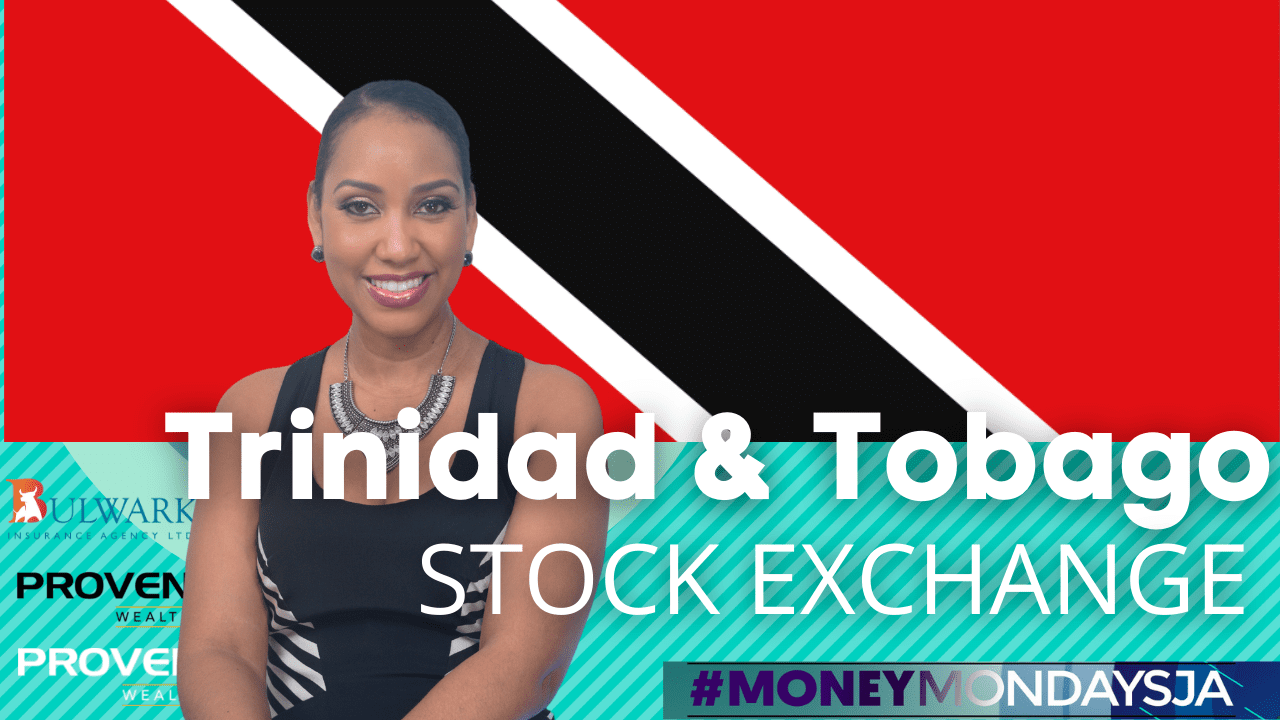Factors that Influence Movements in Stock Prices
The Jamaica Stock Exchange was on top of things, recognized as the best in the world by Bloomberg in 2015 and again in 2018. Major listings like Wisynco, Wigton and TransJamaica Highway happened. Then came the coronavirus and with it, a major drop in stock prices as investors rushed to sell their shares. It’s now 2021 and the stock market is recovering – slowly, but it is recovering, and it is time to work on rebuilding our portfolios or to start investing. I’m gonna share with you some factors that influence the movement of stock prices.
What causes the price of a company’s stock to go up or go down? Two words: Supply and demand. That’s it. Sounds too simple doesn’t it? Supply and demand form the basis of any market. The price of anything – stocks, fruits, your labour, is determined by supply and demand.
You know when you go to Coronation Market in the evenings and the sellers really want to go home so they will lower the price of the goods they have left so that people will buy them. It is the same with the stock market. When there are a lot more sellers than buyers, sellers will offer their stock at a lower price which causes the stock price to go down.
On the flip side, when there’s a lot of demand, the price of a stock goes up. There are more buyers than sellers. The sellers recognize that there are a lot of buyers who really want the stock so they will sell at a higher price and because you really want it, you’ll take it at whatever price they set.
Now that we understand that the price of a stock goes up or down because of supply or demand, we need to understand what causes supply to go up or down and what causes demand for a stock to change.
- Expected Future Growth or Drop in Earnings
One of the first things investors look at when they are buying shares in a company is if the company’s revenue is likely to increase or decrease. One such example is the Mailpac Group. The stock price has been climbing and one of the reasons for this is investors’ expectations. People have been shopping from Black Friday up to Christmas. Because of COVID-19, more people have been using Mailpac Local to get their home deliveries from places like PriceSmart to avoid the crowds. Savvy investors have been observing all of this and Mailpac may see an increase in revenue and net profit. Because of these expectations, the demand for the stock has gone up. More investors have been buying Mailpac shares which has led to upward movement in the company’s share price.
There’s been a steady increase in Mailpac’s stock price from J$2.16 on November 20, 2020 to J$3.98 on January 2, 2021. That’s an 84% increase in less than two months!
On the other hand, we have a company like Palace Amusement which has experienced a fall off in revenue due to restrictions placed on gathering in large groups. With no idea when the corona virus will go away, investors think that the company will continue to earn little revenue and so they’ve been selling their shares causing a fall in the company’s stock price.
Since the start of this year, Palace’s stock price has fallen by 19%, and that’s after already being the worst performing company on the JSE last year, down 55%.
- Seasonal Earnings
The next thing we want to look at is seasonal earnings. Some investors also look at the seasonality of a company’s revenue and speculate that based on what has happened in the past, the company’s revenue will again increase when this season comes around. Mailpac and their expected earnings can be partly attributed to the deals that come in November and the Christmas shopping season. Another example is Berger Paint. People fix up and paint their houses for Christmas so investors will speculate that for that quarter, profits will be higher and so, they buy up Berger stock, increasing demand and driving up the price of the stock. Between November 20, 2020 and Feb 2, 2021, Berger’s stock price moved from J$11.84 to J$13.64. That’s about 13%.
Because school has been closed for most of 2020, companies selling stationery and other such school items such as Stationary and Supplies, SOS, saw a fall in their stock price. Investors speculate that with no school, these companies would take a hit and so they dispose of the stocks they owned in these companies causing the price to fall.
- Earnings Season
Now let’s look at those Earning Season reports – another key factor that affects stock prices. While some investors speculate on the movement of a stock’s price based on what has happened in the past, there are some investors who prefer to wait until the companies release their quarterly statements before they decide which company to buy or sell. If the company’s profit went up, they rush to buy the stock, which increases the stock price. But if the company’s profit went down, they rush to sell. An example of an increase in demand for a stock due to its financials is Seprod. When Seprod released its third quarter report on October 20, 2020, the stock was at J$58.24. Literally the next trading day, the stock price jumped to J$64.25 and the price has been trending upwards since then, trading as high as J$71.71.
- Additional Public Offering, Rights Issue and Stock Splits
Here’s another factor. When a company announces that they intend to do an additional public offer, rights issue or a stock split, demand for the company’s stock tends to increase. Why? Companies doing APOs or rights issues sometimes offer the shares at a discount with current shareholders getting a greater discount to the price than the stock is trading at the time. This makes APOs and right issues attractive to investors looking to buy the stock. These investors buy shares in the company in hopes to get the greater discount being offered to current shareholders.
In a previous episode, I explained what a stock split is but just as refresher, a stock split takes place when a company divides its current shares by 2, 5, 10 or even more to create new shares for a company. So in a 10 to one stock split, if you have one share with a price of $20, after a stock split, you will have 10 shares, worth $2 each and with a total value of $20. Now companies do stock splits to increase to increase the number of times the company’s stock is bought and sold on the stock market. When the stock split happens, investors think that the share is cheaper so they may buy more. This drives up demand which increases the price of the stock.
- Mergers, acquisitions, new management
Another thing that increases the demand for a company’s shares is news of mergers, acquisitions, expansions or new management. When a business merges or acquires another business to cut costs, control supply of their raw material or to expand into a new location like Derrimon’s recent acquisition of the businesses in New York, they expect future growth in the company’s profits. This increases demand for the stock which causes the stock price to go up. In Derrimon’s case, the announcement of the acquisitions during their APO increased demand for the stock which saw them upsizing the offer to get additional capital from the market.
- Now let’s look at rules, regulations, laws.
A country has laws, rules and regulations for industries and the environment. Sometimes the passing and the enforcing of these rules may affect companies in good or bad ways. When the Styrofoam ban came into place on January 1, 2020, Wisynco as the only producer of Styrofoam in Jamaica was negatively affected. Leading up to Jan 1, after Jan 1 and when the company posted its earnings, we can see where the stock price declined as investors started to sell their shares. With more investors wanting to sell than buy, the stock price decreased.
- Black Swan events
Black Swan events like the Coronavirus also affect the movement of stock prices. A black swan event is an unpredictable event that creates a devastating impact. Nobody could have predicted that we would see a pandemic that would cause industries to collapse. Supply chains have been disrupted as companies in almost every industry have been forced to either reduce staff or close, which reduced their revenue. Once companies start to lose money they are no longer attractive to investors so investors want to quickly get rid of such stocks. Because everybody is selling and nobody wants to buy, sellers have to sell at as low a price as possible to attract a buyer. This has resulted in the steep decline in share prices on the JSE and other stock markets around the world.
- Dividends or the lack thereof.
There are investors who buy stocks to get dividends. They buy stocks in companies that declare a high dividend or make consistent dividends. We say these are dividend stocks. Earlier in the pandemic, the BOJ advised deposit taking institutions and financial holding companies to suspend dividends for the year in order to maintain healthy cash balances to protect themselves from the expected fall in revenue and expected credit loss. Financial companies such as NCB, and Sagicor saw a decline in their stock price as these investors tried to get rid of these stocks.
- Market Sentiment
Market sentiment simply means that investors may just decide that they like a particular company and so decide to buy the company’s stock. After Fontana listed, the general attitude in the market was that Fontana was a good stock with the potential to earn higher revenue in the future. There was also the news of the construction of the Waterloo branch. Investors ran to buy the stock which pushed up the stock price to as high as J$8.00.
This list is not exhaustive. The movement in stock prices is influenced by a lot of things from political conditions in a country, business confidence, importation restrictions, change in the cost of supplies like coffee for Salada, weather conditions, a hurricane destroying Jamaica Producers bananas, and many other factors. Is there anything I am missing? Let me know in the comments.
RELATED TO THIS VIDEO:
TAKING STOCK – MAILPAC STOCK DOUBLES AFTER LISTING!! EXPRESS FITNESS IPO COMING?? AND MORE!!
https://www.youtube.com/watch?v=00nR6MoJj8g&t=727s
TAKING STOCK – PALACE AMUSEMENT PIVOTS WITH DRIVE-IN AND MORE HALF OFF DAYS
https://www.youtube.com/watch?v=GzkGWNcJxfU&t=1953s
TAKING STOCK – SEPROD EXPANDS, WIGTON’S RESULTS, NCB RAISING
https://www.youtube.com/watch?v=pDTpmBFuRkY&t=26s
#MoneyMondaysJa – WHAT IS A STOCK SPLIT?
https://www.youtube.com/watch?v=5qj0d2LjbPE&t=2s
EVERYTHING YOU NEED TO KNOW ABOUT DERRIMON TRADING APO
https://www.youtube.com/watch?v=jOhWqf87rws&t=3105s
#MoneyMondaysJa – DIVIDENDS SUSPENDED UNTIL 2021!!!
https://www.youtube.com/watch?v=jtmwnm88rZo&t=7s
Categories: MoneyMondaysJA
Audio Only
More #MoneyMondaysJA Episodes






Leave A Comment